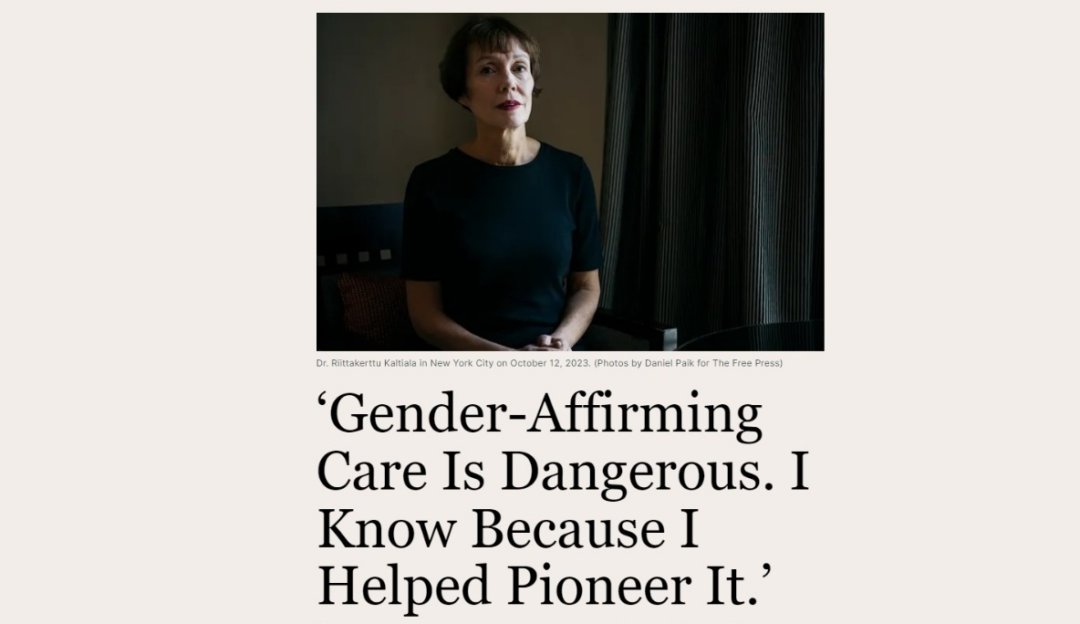In a groundbreaking account for The Free Press “Gender-Affirming Care Is Dangerous. I Know Because I Helped Pioneer It.“, Dr. Riittakerttu Kaltiala, a distinguished Finnish adolescent psychiatrist, has raised serious concerns about the safety and efficacy of gender-affirming care for young individuals. Having played a pivotal role in establishing a gender identity service for minors in 2011, Dr. Kaltiala recounts her journey from overseeing the pioneering clinic to becoming a vocal critic of current medical practices.
Dr. Kaltiala, having personally assessed over 500 adolescents experiencing gender dysphoria, reveals a stark contrast between the expected outcomes of treatments based on the Dutch protocol—once the gold standard for pediatric gender medicine—and the realities observed in her clinic. Initially hailed as a breakthrough, the Dutch protocol advocated for early intervention in blocking natural puberty, followed by opposite-sex hormones, asserting that this would facilitate a smoother transition.
However, Dr. Kaltiala’s clinic encountered unexpected challenges. Contrary to expectations, the majority of patients were girls between 15 and 17 years old, presenting with severe psychiatric conditions, including autism spectrum disorders, depression, anxiety, and self-harm. Dr. Kaltiala argues that the disconnect between the Dutch model and her clinic’s experiences raised legitimate concerns about the application of gender-affirming care.
The article highlights a growing global trend of psychiatrically distressed patients seeking gender transition, often influenced by social contagion. Dr. Kaltiala points to the failure of health providers to address this phenomenon, attributing the silence to organized campaigns against those expressing concerns about the impact of such treatments.
Notably, Dr. Kaltiala’s skepticism prompted her to conduct a study in 2015, revealing troubling aspects of the patients’ mental health and their divergence from the Dutch model. Her concerns intensified as former patients expressed regret and sought to detransition, challenging the foundation of the Dutch protocol.
In 2020, Finland’s national medical body, COHERE, released findings declaring youth gender transition an experimental practice, urging caution due to biased and unreliable studies. Dr. Kaltiala expresses vindication as similar reviews in the UK and Sweden have reached comparable conclusions, leading to a reconsideration of gender-affirming approaches.
Despite the mounting evidence, Dr. Kaltiala notes the resistance from American medical societies, particularly the American Academy of Pediatrics. Her attempts to address concerns at a conference were rejected, raising questions about the impartiality of medical organizations in the U.S. She emphasizes the need for open discourse, expressing concern over the suppression of critical voices and the misleading use of suicide risk to pressure parents into approving gender medicalization.
In conclusion, Dr. Kaltiala draws parallels with historical medical scandals, urging a cautious approach and a reevaluation of the current trajectory of gender transition practices. The article underscores the importance of evidence-based medicine and the potential dangers of unchecked groupthink in the medical community.

